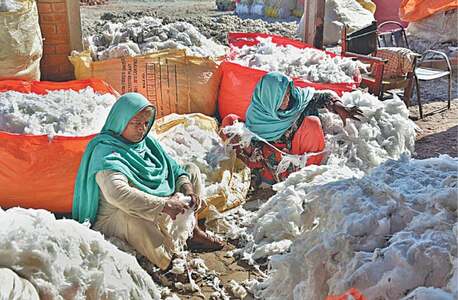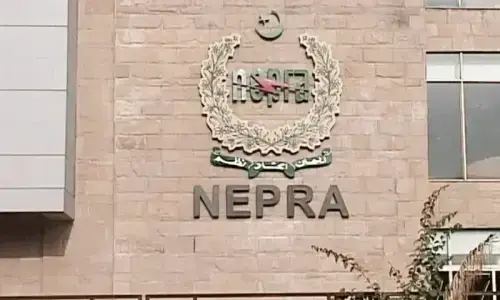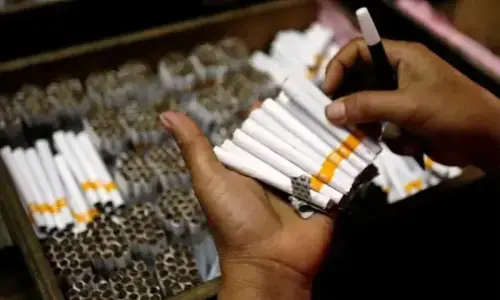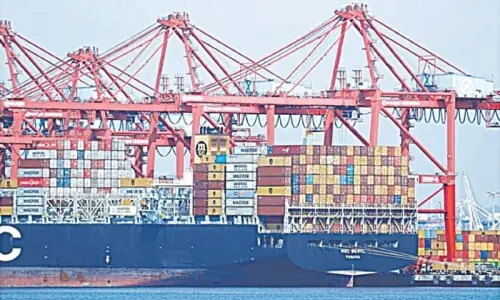LAHORE: The Trading Corporation of Pakistan (TCP) has entered the cotton market to stabilise the white lint prices which have fallen below the intervention threshold.
The TCP will purchase one million bales of lint to stabilise the market so that the growers may get the minimum rate of Rs8,500 per maund as promised by the government at the outset of the sowing season to woo the farmers back to the crop.
Sources say the TCP would purchase one million bales nationwide and bids for appointments have been solicited from cotton procurement agents, the cotton procurement firm and labour contractors.
The surge in cotton prices in the open market has brought about a sense of optimism among the growers. The federal government set the intervention price at Rs8,500 per maund and stipulated that should cotton prices dip below this level the TCP would start buying from ginners to stabilise prices.
Published in Dawn, August 9th, 2023
































